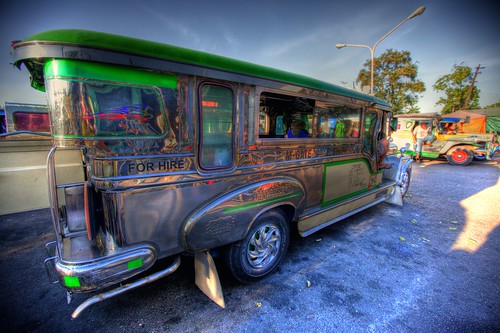
Green n Chrome Jeepney, originally uploaded by baldrick2dogs.
A Pinoy pride and joy. This was possibly the best kept jeepney in Angeles

A Pinoy pride and joy. This was possibly the best kept jeepney in Angeles
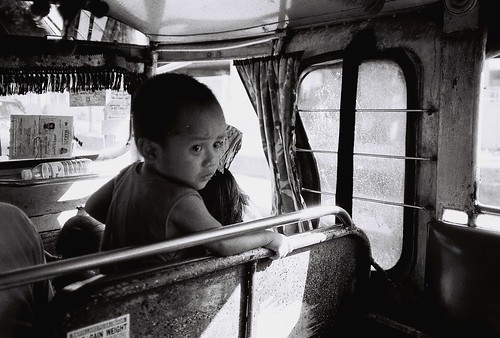
when i'm inside a jeepney, going to studio58. studio58 is lab where my black and white rolls were processed.
olympus xa rangefinder, fujifilm neopan 400

"Like an automotive phoenix, the jeepney rose from the ashes of Manila at the end of the Second World War. After Japan's surrender in 1945, the U.S. military began sending millions of American servicemen home to their peacetime lives. Much of their surplus equipment stayed in the Pacific, however. In Manila, which had been leveled when the Americans retook the city street by street from the Japanese, the U.S. Army sold or simply gave away a huge number of surplus jeeps to local Filipinos.
Manila's transportation infrastructure had been destroyed in the fighting, so entrepreneurial Filipinos began using these surplus jeeps as share taxis. Drivers soon began painting their olive-drab jeeps in a bright rainbow of peacetime colors designed to grab the attention of potential passengers. Drivers added metal roofs to ward off the sun and rain; they extended the rear of their vehicles in order to crowd more people aboard. An entire range of accessories followed-chrome hood ornaments, ear-shattering airhorns, religious icons and flashing multicolored lights. Manilenos suddenly realized that an entirely new sort of vehicle had been born in their war-ravaged city.
Fifty-seven years after the Second World War ended with a double atomic bang, jeepneys are still hauling passengers throughout the Philippines. Though these sturdy machines face increasing competition from more modern sedan and minivan taxis, jeepneys remain the backbone of public transportation. Many jeepneys operate in the Metro Manila area, but a large number also ply jungle back roads as well. Unlike a bus or minivan, a jeepney can handle a muddy country track with ease."
"The Jeepney: Automotive Icon of the Philippines" By Steven K. Bailey
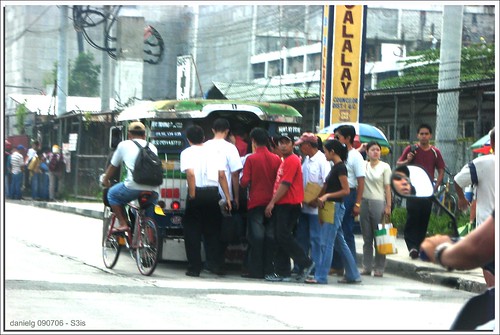
People scrambling to commute to work at the start of the day, I wonder if they will all fit. Sorry for the motion blur, I was in a bumpy car.
When American troops began to leave the Philippines at the end of World War II, hundreds of surplus jeeps were sold or given to local Filipinos. Locals stripped down the jeeps to accommodate several passengers, added metal roofs for shade, and decorated the vehicles with vibrant colors and bright chrome hood ornaments. The jeepney is one of the most popular public transportation in the Philippines

"Jeepneys are a popular means of public transportation in the Philippines. They were originally made from US military jeeps left over from World War II and are well known for their flamboyant decoration and crowded seating. They have also become a symbol of Philippine culture." - *langga_kita*(hibernating..)
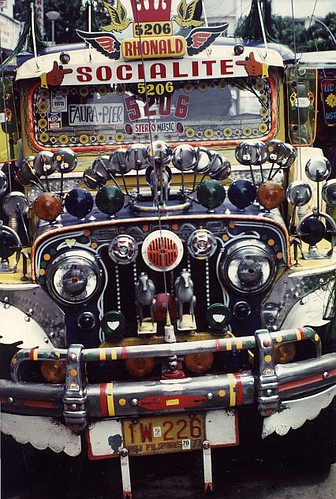
"Jeepney in Manila, Philippines" - FriskoDude
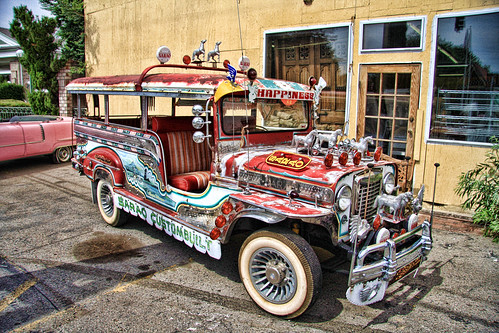
"A Sarao Jeepney outside of Erick Schat’s Bakkerÿ in Bishop, California." - Dave Toussaint
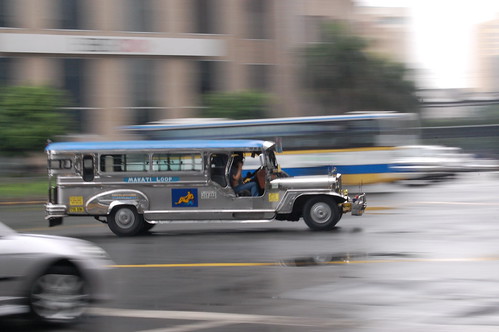
"The Philippine Jeepney: "Undisputed King of the Road". It symbolizes the Filipino creativtiy, innovativeness and ingenuity.
Everyday I ride a jeepney and I'm proud to be PINOY! =P" - tengromero
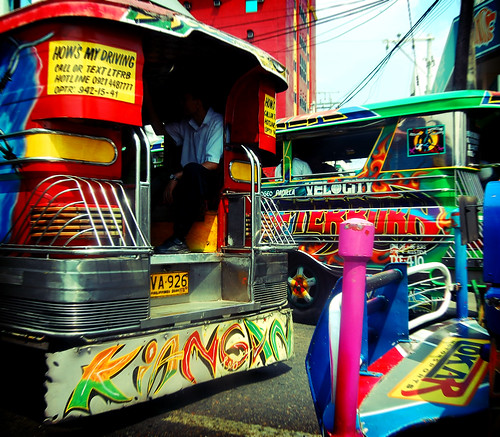
"Jeepneys are a standard form of public transportation in the Philippines. They're usually brightly decorated.
Les jeepneys sont une forme standard de la transportation publique aux Philippines. Ce sont normalement décorés brillaments.
Cool--this photo made it into Explore at #397! I must be getting good or something, LOL!" - Daniel Lestarjette